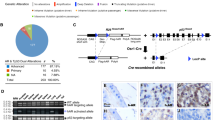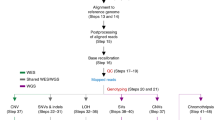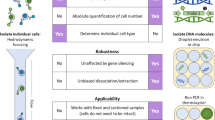Abstract
Background
The TRansgenic Adenocarcinoma of the Mouse Prostate (TRAMP) model remains one of the most widely used transgenic mouse models of prostate cancer. This is due to its ability to recapitulate with ~100% penetrance multiple aspects of the human disease such as prostatic intraepithelial neoplasia lesions, invasive carcinoma, progression to castration-resistant prostate cancer including aggressive neuroendocrine prostate cancer and metastasis. Despite its popularity, the use of TRAMP mice is limited/slowed by the inability to distinguish the zygosity of the TRAMP transgene. This is especially true for breeding strategies implementing multiple crosses and alleles and when the rapid generation of large animal cohorts with the desired genotype is needed.
Methods
We developed a quantitative PCR (qPCR) approach to determine the relative TRAMP transgene copy number of mice.
Results
This method was validated by three independent laboratories across two institutions, which successfully identified the genotype of the mice 98.2% of the time (165/168) in the first attempt. The genotypes of the uncertain mice were correctly identified in the repeated experiments.
Conclusions
We develop the first straightforward, qPCR approach to reliably determine the TRAMP transgene zygosity. The development of this qPCR-based genotyping method enables researchers to streamline breeding strategies when creating complex genetic mouse models involving TRAMP mice; thus, ultimately reducing the required animal numbers, cost, and investigator time.
This is a preview of subscription content, access via your institution
Access options
Subscribe to this journal
Receive 4 print issues and online access
$259.00 per year
only $64.75 per issue
Buy this article
- Purchase on Springer Link
- Instant access to full article PDF
Prices may be subject to local taxes which are calculated during checkout

Similar content being viewed by others
References
Siegel RL, Miller KD, Jemal A. Cancer statistics, 2019. CA Cancer J Clin. 2019;69:7–34.
Wang G, Zhao D, Spring DJ, DePinho RA. Genetics and biology of prostate cancer. Genes Dev. 2018;32:1105–40.
Ittmann M, Huang J, Radaelli E, Martin P, Signoretti S, Sullivan R, et al. Animal models of human prostate cancer: the consensus report of the New York meeting of the Mouse Models of Human Cancers Consortium Prostate Pathology Committee. Cancer Res. 2013;73:2718–36.
Gingrich JR, Barrios RJ, Kattan MW, Nahm HS, Finegold MJ, Greenberg NM. Androgen-independent prostate cancer progression in the TRAMP model. Cancer Res. 1997;57:4687–91.
Gingrich JR, Barrios RJ, Morton RA, Boyce BF, DeMayo FJ, Finegold MJ, et al. Metastatic prostate cancer in a transgenic mouse. Cancer Res. 1996;56:4096–102.
Greenberg NM, DeMayo F, Finegold MJ, Medina D, Tilley WD, Aspinall JO, et al. Prostate cancer in a transgenic mouse. Proc Natl Acad Sci USA. 1995;92:3439–43.
Chiaverotti T, Couto SS, Donjacour A, Mao JH, Nagase H, Cardiff RD, et al. Dissociation of epithelial and neuroendocrine carcinoma lineages in the transgenic adenocarcinoma of mouse prostate model of prostate cancer. Am J Pathol. 2008;172:236–46.
Hurwitz AA, Foster BA, Allison JP, Greenberg NM, Kwon ED. The TRAMP mouse as a model for prostate cancer. Curr Protoc Immunol. 2001;Chapter 20:Unit 20 5.
Berman-Booty LD, Knudsen KE. Models of neuroendocrine prostate cancer. Endocr Relat Cancer. 2015;22:R33–49.
Gelman IH. How the TRAMP model revolutionized the study of prostate cancer progression. Cancer Res. 2016;76:6137–9.
Grabowska MM, Matusik RJ. Therapy-induced small-cell disease: from mouse to man and back. Nat Rev Urol. 2018;15:662–3.
Aggarwal R, Huang J, Alumkal JJ, Zhang L, Feng FY, Thomas GV, et al. Clinical and genomic characterization of treatment-emergent small-cell neuroendocrine prostate cancer: a multi-institutional prospective study. J Clin Oncol. 2018;36:2492–503.
Davies AH, Beltran H, Zoubeidi A. Cellular plasticity and the neuroendocrine phenotype in prostate cancer. Nat Rev Urol. 2018;15:271–86.
Aparicio AM, Shen L, Tapia EL, Lu JF, Chen HC, Zhang J, et al. Combined tumor suppressor defects characterize clinically defined aggressive variant prostate cancers. Clin Cancer Res. 2016;22:1520–30.
Beltran H, Prandi D, Mosquera JM, Benelli M, Puca L, Cyrta J, et al. Divergent clonal evolution of castration-resistant neuroendocrine prostate cancer. Nat Med. 2016;22:298–305.
Beltran H, Rickman DS, Park K, Chae SS, Sboner A, MacDonald TY, et al. Molecular characterization of neuroendocrine prostate cancer and identification of new drug targets. Cancer Discov. 2011;1:487–95.
Mu P, Zhang Z, Benelli M, Karthaus WR, Hoover E, Chen CC, et al. SOX2 promotes lineage plasticity and antiandrogen resistance in TP53- and RB1-deficient prostate cancer. Science. 2017;355:84–8.
Ku SY, Rosario S, Wang Y, Mu P, Seshadri M, Goodrich ZW, et al. Rb1 and Trp53 cooperate to suppress prostate cancer lineage plasticity, metastasis, and antiandrogen resistance. Science. 2017;355:78–83.
Zou M, Toivanen R, Mitrofanova A, Floch N, Hayati S, Sun Y, et al. Transdifferentiation as a mechanism of treatment resistance in a mouse model of castration-resistant prostate cancer. Cancer Discov. 2017;7:736–49.
Lee DK, Liu Y, Liao L, Li W, Danielpour D, Xu J. Neuroendocrine prostate carcinoma cells originate from the p63-expressing basal cells but not the pre-existing adenocarcinoma cells in mice. Cell Res. 2019;29:420–2.
Ding Z, Wu CJ, Chu GC, Xiao Y, Ho D, Zhang J, et al. SMAD4-dependent barrier constrains prostate cancer growth and metastatic progression. Nature. 2011;470:269–73.
Truett GE, Heeger P, Mynatt RL, Truett AA, Walker JA, Warman ML. Preparation of PCR-quality mouse genomic DNA with hot sodium hydroxide and tris (HotSHOT). Biotechniques. 2000;29:52–4.
Acknowledgements
GW and DEF are supported by the Prostate Cancer Moon Shot and Institutional Research Grant (IRG) Programs at the University of Texas MD Anderson Cancer Center. GW and DEF are also supported by the National Institutes of Health (NIH) Prostate Cancer SPORE (P50 CA140388). GW is additionally supported by a University of Texas Star Award and NIH grant R00CA194289. DEF is further supported by NIH grant R01CA184208 and a grant from the American Cancer Society (RSG-16-084-01 — TBE). BAF is supported by National Cancer Institute (NCI) grant P30CA016056 involving the use of Roswell Park Comprehensive Cancer Center’s Genomic Shared Resource.
Author information
Authors and Affiliations
Corresponding authors
Ethics declarations
Conflict of interest
DEF has received research funding from GTx, Inc and has a familial relationship with Maia Biotechnology, Alms Therapeutics, Hinova Pharmaceuticals and Barricade Therapeutics. The other authors report no potential conflicts of interest.
Additional information
Publisher’s note Springer Nature remains neutral with regard to jurisdictional claims in published maps and institutional affiliations.
Supplementary information
Rights and permissions
About this article
Cite this article
Chen, R., Liang, X., Murray, M.M. et al. A simple quantitative PCR assay to determine TRAMP transgene zygosity. Prostate Cancer Prostatic Dis 24, 358–361 (2021). https://doi.org/10.1038/s41391-020-00282-4
Received:
Revised:
Accepted:
Published:
Issue Date:
DOI: https://doi.org/10.1038/s41391-020-00282-4



